Iran’s Trade Agreement With Donetsk Fuels Conflicting Reports
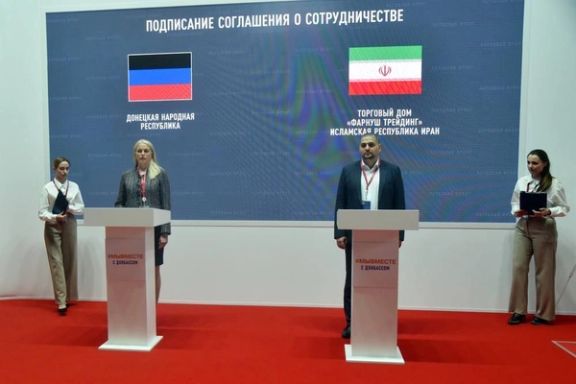
Conflicting reports have come from Tehran about Iran establishing economic relations with the breakaway region of Donetsk in eastern Ukraine held by separatists.

Conflicting reports have come from Tehran about Iran establishing economic relations with the breakaway region of Donetsk in eastern Ukraine held by separatists.
Following a report by Radio Farda that cited the self-proclaimed Russian-backed president of Ukraine Denis Pushilin as announcing the agreement, the Iranian government's news website IRNA quoted “an informed source” in the Iranian Foreign Ministry denying the report while another Iranian state-run media says the deal was signed during the St. Petersburg International Economic Forum, which was held in the city from June 15 to 18.
According to the Young Journalists Club (YJC), a hardliner news outlet with links to the IRGC and an affiliate of the state broadcaster IRIB, Pushilin has said "The Donetsk People's Republic has a new partner now, and despite obstacles, our international economic relations are expanding.”
The agreement will see Iran supplying Donetsk with construction materials and horticultural products, including fruits and vegetables, while Donetsk, in turn, intends to export metals, cast iron, fertilizers, steel products, coal mining tools, as well as other types of mining equipment to Iran.
Radio Farda said that Pushilin mentioned Farnoush trade company – headquartered in Maku Free Zone in Iran’s West Azarbaijan province on the border with Turkey – as the company representing Iran in the agreement.
Russia recognized the independence of two breakaway regions of Donetsk and Luhansk in February, which practically paved the way for the Russian invasion of Ukraine and deployment of Russian troops there.
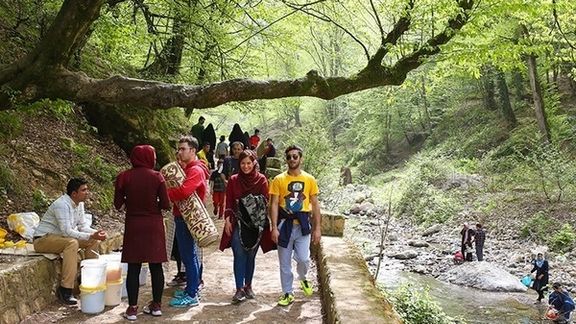
Iran’s morality police arrested 120 people in a nature tour in the forests of the Caspian Sea area for flouting their hijab, dancing together, and drinking alcohol.
The head of the Justice Department of Mazandaran Province, Mohammad-Sadegh Akbari, said Sunday participants in the tour had “committed criminal activities".
These, Akbari said, included unrelated men and women mingling and dancing together, drinking, and women flouting their hijab. He said the case has been referred to relevant judicial authorities for prosecution.
Young men and women, and even groups of families, often book nature tours together to remote areas such as forests, mountains, and deserts to socialize and party in a more relaxed setting than urban public and private venues. Mixed parties with music, dance, and alcohol are banned and often raided by the morality police. Participants in such parties can be arrested even within the confines of their private homes.
Such events very rarely involve any crimes other than merrymaking, but nevertheless, authorities in charge of watching people's abidance by the state-sanctioned Islamic norms and regulations consider them as defiance and often crack down when tipped off. Being caught at mixed parties, particularly where alcohol is served, may entail legal punishments including prison, lashes, and cash fines.
Many branches of Islamic mysticism are considered as heretical sects in the Islamic Republic and their followers sometimes resort to booking nature tours in remote areas as a means of congregation. Last September police arrested 27 women and 52 men for holding a congregation, as a “false mystic sect” in a remote forested area of Gilan.
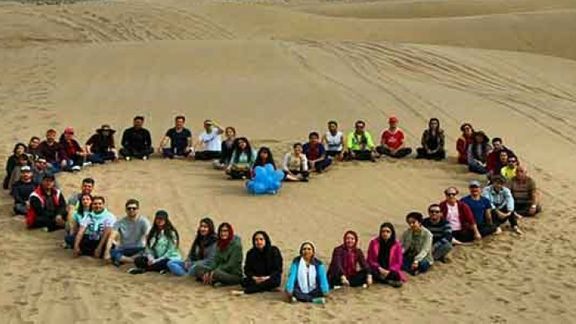
Group arrests of participants in nature tours is not unprecedented. In the past few years several groups of nature tourists have been arrested in the deserts and mountains for flouting Islamic morality rules.
The head of Mazandaran Justice Department also accused the participants in the recent forest tour of putting up "devil-worship banners" in their forest gathering. Devil-worship, in Iranian authorities' jargon, often refers to heavy metal or hard rock music and fashion associated with them, including body art, rather than the cult of the devil.
In December 2019, morality police arrested 135 young men and women at a party in an industrial shed near Tehran and branded them as "devil-worshippers".
Iranian authorities often invite foreign tourists to the country promising them safety and security if “they abide by the country’s rules”, including wearing the hijab for women and abstaining from alcohol.
The restrictions imposed on foreign tourists have deprived the country of huge revenues. The Russian ambassador to Tehran, Levan Dzhagaryan (Jagaryan), recently said in an interview that Iran could not be a popular destination for Russian tourists due to its dress code and ban on alcohol. Dzhagaryan’s remarks hugely displeased hardliners who accused him of being insensitive and disrespectful.
In recent weeks promotion of Iran’s tourist attractions by young social media influencer Hoda Rostami, particularly on her Instagram page which has over 450k followers, has stirred a huge controversy in Persian social media. Rostami took a ‘fam trip’ to Iran and published her own or other female tourists' images next to mosques, ancient relics and even the notorious Evin prison on social media.
Many netzines accuse Rostami of trying to whitewash the realities of living in Iran including many social and political restrictions imposed on Iranians, including the hijab, to encourage foreigners to visit the country. Rostami admitted, after being criticized that she had meetings with state officials at ministerial level to facilitate the fam trips.
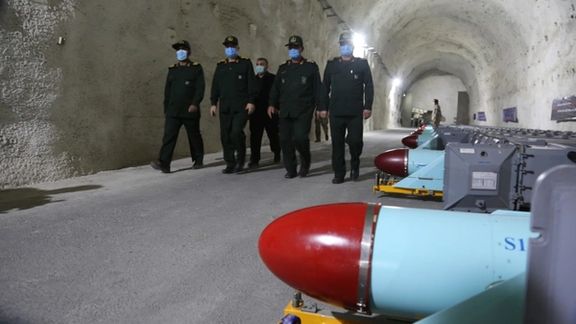
Israeli Defense Minister Benny Gantz claimed Monday United States-led regional air-defense had stopped Iranian attacks on Israel and “other countries.”
Speaking to the Israeli parliament’s defense and foreign affairs committee, Gantz referred both to a shared vision and a “program” that was “already operative.” Gantz said the visit to Israel and Saudi Arabia in mid-July of US President Joe Biden would “support this process.”
“I have been leading for the past year together with my colleagues at the Pentagon and the [Biden] administration an extensive program to strengthen cooperation between Israel and the countries of the region, under American leadership and Centcom [US Central Command, covering the Middle East],” Gantz said.
“Part of that vision is what I call MEAD, Middle East Air Defense, which we are building amid Iran’s attempts to hit the region’s countries with rockets, cruise missiles and UAVs [unmanned aerial vehicles, or drones].”
Possibilities for coordinating air defense were reportedly discussed at the March meeting in Negev of foreign ministers from Israel, the United Arab Emirates, Bahrain, Morocco, Egypt, and the US.
Israel has been working to improve relations with the Persian Gulf monarchies especially since the 2020 ‘normalization’ agreements with Bahrain and the UAE, arguing they face a common threat in Iran. The Israelis link Syria, where Iranian presence in support of President Bashar al-Assad and Hezbollah, and Yemen, where Iran backs Ansar Allah, known as the Houthis, fighting a Saudi coalition that intervened in the civil war seven years ago. Saudi Arabia has faced intermittent Houthi missile and drone attacks since 2019. Iran has been accused of supplying the weapons to the Houthis.
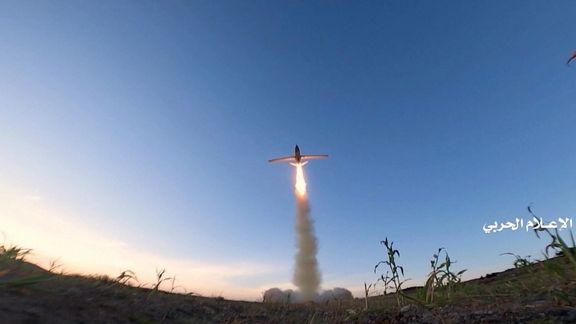
Rather than following Bahrain and the UAE in ‘normalizing’ relations with Israel, Saudi Arabia has stuck to Arab League policy of insisting Israel first accepts a viable Palestinian state.
‘Powerful responses’
Gantz addressed a sense among many Israeli politicians that tensions with Iran are worsening, especially after the alleged killings of Iranian scientists and officers by Israel. He said he had ordered “powerful responses” prepared after reports Iran would kidnap Israelis in Turkey. His remarks came hours after Israeli authorities suspected an Iranian cyberattack had triggered rocket sirens in Jerusalem and Eilat Sunday.
Gantz said the Israeli government has been successful in “enlisting international support in our struggle against Iran in recent months," which he said included “our efforts to keep the designation of a terror organization, for the Iranian Revolutionary Guard Corps, and in the condemnation of Iran by the IAEA.”
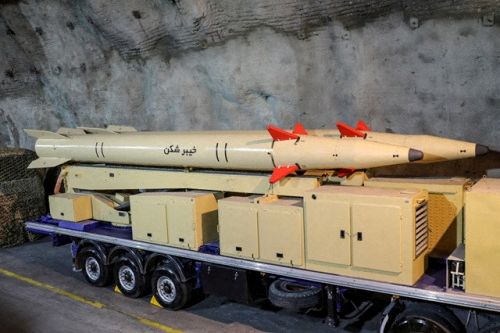
Year-long talks in Vienna aimed at reviving the 2015 international agreement limiting Iran’s nuclear program have been paused since March, reportedly because the US has refused Tehran’s request to remove its Revolutionary Guards (IRGC), around half its defense forces, from Washington’s list of ‘foreign terrorist organizations.’ Israel opposed the 2015 deal, the JCPOA (Joint Comprehensive Plan of Action), which the US left in 2018.
Europe Backs Restoring JCPOA
Addressing Gantz’s remarks on air defense, an Israeli official said “partner countries” were synchronising efforts through electronic communication rather than using the same physical facilities. Some US-based analysts have suggested Washington is fostering closer cooperation between Israel and Arab Gulf States in order to help fill a gap left by the withdrawal of US hardware.
The Council of the European Union Monday agreed a document, ‘Council conclusions on a strategic partnership with the Gulf’, that welcomed “recent positive steps, including…the normalization agreements with Israel…and the recent agreement on a truce and on confidence building measures in Yemen as a major development, offer opportunities for improved wider regional security and stability.”
But the EU also reiterated support for the “restoration and full re-implementation” of the JCPOA, which it said had “the potential to contribute positively to regional prosperity and security.”
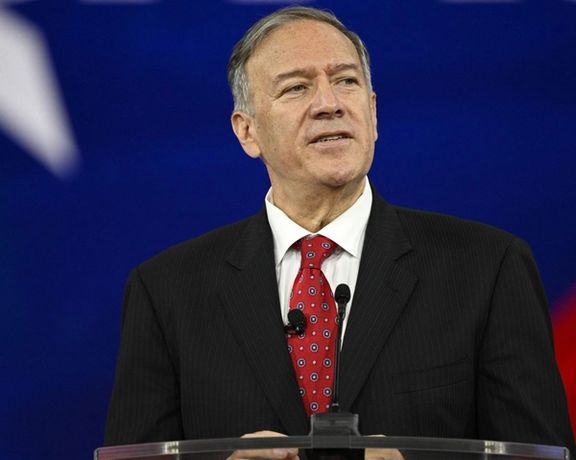
Former US Secretary of State Mike Pompeo says President Joe Biden has thrown out stability in the Middle East by negotiating to make a new nuclear deal with Iran.
Pompeo told Fox News on Sunday, "The stability that we had built during our four years has now just been squandered and thrown away. They’re putting us all at risk."
While the Biden administration is hoping to “appease” Iran, it is possible that the Iranians could shut down the Strait of Hormuz and drive energy prices even higher, he said while enumerating challenges currently facing the administration ahead of Biden’s visit to Saudi Arabia, which is reportedly aimed at reducing skyrocketing gas prices and confront Iran’s nuclear weapons program.
Pompeo criticized Biden’s energy policy to fill the need for more oil and gas in the market from foreign sources, saying that instead of energy producers within the US, “they started with the Iranians and the Venezuelans and now have moved to the Saudis.” “American energy is the right place to start”, he added
"When you side with the Iranians, when you side with the world’s largest state sponsor of terrorism, against Israel, and against Saudi Arabia, and against the Emirates, the leaders of those countries no longer have confidence in the United States, and the chance that they’re going to do a solid for Joe Biden is exceedingly low," he said.
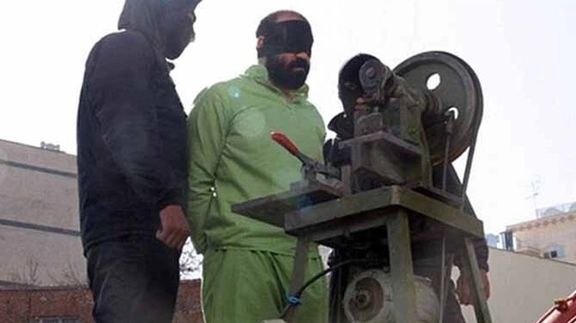
Iraj Fazel, head of the Iranian association of surgeons, has called on the judiciary not to sanction the amputation of fingers to punish thieves.
In a letter to the chief justice Gholam-Hossein Mohseni-Ejei released to the media Sunday, Fazel called the practice "worrying and horrifying" and said it would create “a wave of hatred and disgust in the world.”
Earlier in June, four fingers of a prisoner were cut off in Tehran’s Evin prison with a guillotine reportedly installed at the infirmary a month earlier to carry out such sentences. According to some readings of Islamic law, just punishment for theft can be amputation of fingers or hands.
Eight men convicted of theft are at imminent risk of having their fingers cut off, according to the Abdorrahman Boroumand Center for Human Rights in Iran (ABC) and Amnesty International.
Three of them, who have waited five years for their sentence to be implemented, have been transferred from Orumiyeh prison in the north-western province of West Azarbaijan to Tehran for the amputation to take place.
"The international community can and should react urgently to stop the implementation of these amputations," Roya Boroumand, ABC executive director, said earlier in June. Amnesty condemned the move to “deliberately mutilate and traumatize prisoners through unspeakably cruel judicial corporal punishments.”
An informed source from the judiciary reacted to the letter, denying reports about the imminent amputations.
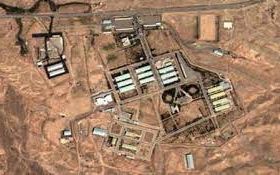
Head of Iran’s Revolutionary Guard University has confirmed that the explosion at Iran’s Parchin military complex that killed a Defense Ministry engineer was an act of sabotage.
Imam Hossein University’s Chancellor Mohammad-Reza Hassani Ahangar, who is an IRGC commander, said in a speech published on Monday that the “industrial sabotage” targeted one of the production lines of the base.
"We have witnessed industrial sabotage at the level of the Armed Forces laboratories, and efforts have been made to destroy our advanced laboratory equipment," he said, noting that the officer who was killed not the target. "We must prevent threats with artificial intelligence methods," he added.
Following the blast late in May, the Defense Ministry had said that “in an accident that took place in one of the research units of the Defense Ministry in the Parchin area, engineer Ehsan Ghadbeigi was martyred and one of his colleagues injured.”
Iran’s missile and space programs have suffered a series of mysterious explosions in recent years. In 2020, a giant explosion occurred in the area of Parchin at a gas storage facility, rattling the capital and sending a massive fireball into the sky near Tehran.
Iran has accused Israel of carrying out several attacks on facilities linked to its nuclear program and of killing its nuclear scientists since mid-2020.
A series of killings and deaths among IRGC ranks in Iran in recent weeks has led to suspicion that they might have been targets of a secret series of operations, purportedly by Mossad.